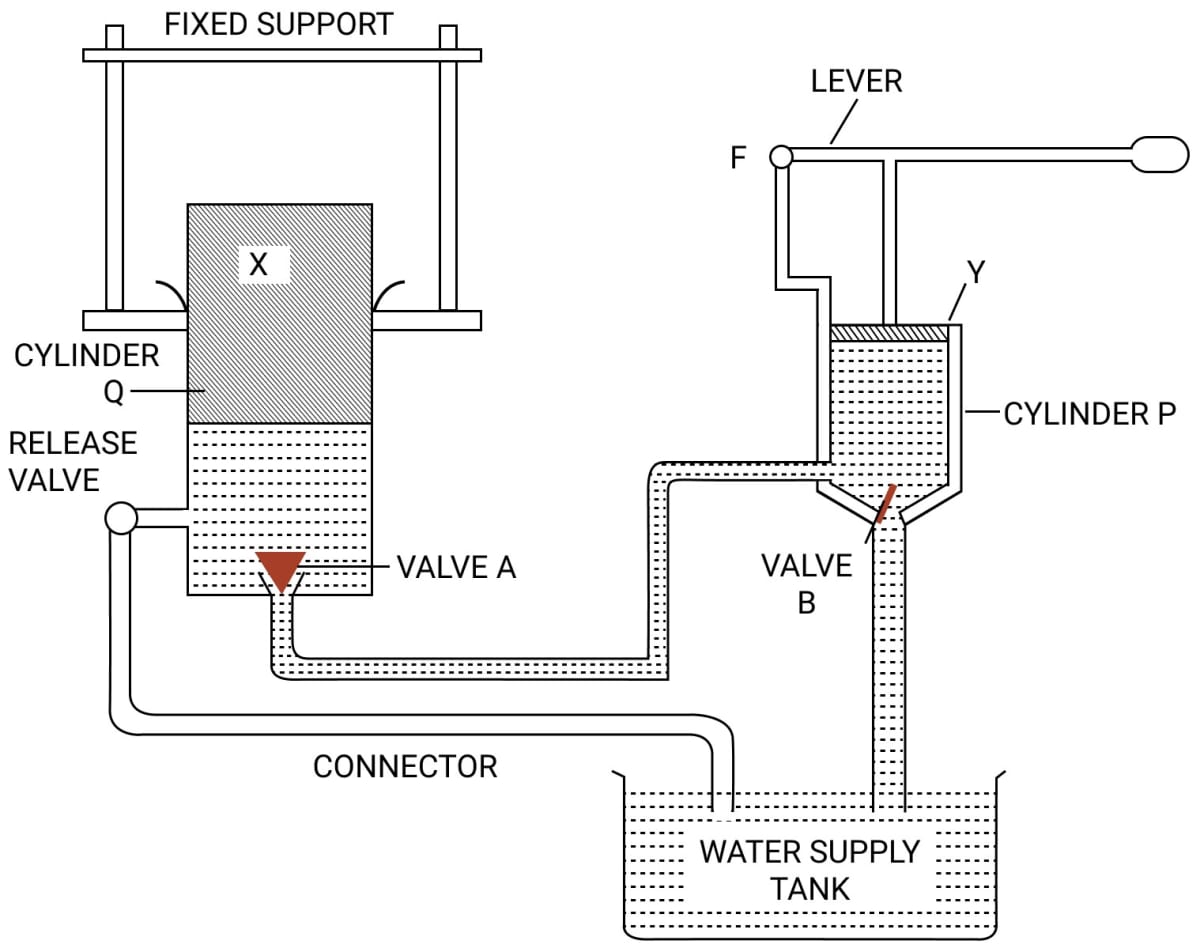Physics
The diagram in figure shows a device which makes use of the principle of transmission of pressure.

(i) Name the parts labelled by the letters X and Y.
(ii) Describe what happens to the valves A and B and to the quantity of water in the two cylinders when the lever arm is moved down.
(iii) Give reasons for what happens to the valves A and B in part (ii).
(iv) What happens when the release valve is opened ?
(v) What happens to the valve B in cylinder P when the lever arm is moved up ?
(vi) Give a reason for your answer in part (v)
(vii) State one use of the above device.
Fluids Pressure
53 Likes
Answer
(i) The parts are —
X → Press plunger
Y → Pump plunger
(ii) When the lever arm is moved down, the valve B closes and the valve A opens, so water from cylinder P is forced into the cylinder Q.
(iii) When the lever arm is moved down, the valve B closes due to an increase in pressure in cylinder P. Now pressure from cylinder P is transmitted to the connecting pipe. As the pressure in connecting pipe becomes greater than the cylinder Q, the valve A opens, so water from cylinder P is forced into the cylinder Q.
(iv) When the release valve is opened the ram (or press) plunger Q gets lowered and water of the cylinder Q runs out into the reservoir.
(v) When the lever arm is moved up the valve B opens upwards.
(vi) When the lever arm is moved up the valve B opens upward because the pressure in cylinder P decreases.
(vii) An hydraulic press is used for pressing cotton bales and goods like quilts, books, etc.
Answered By
36 Likes